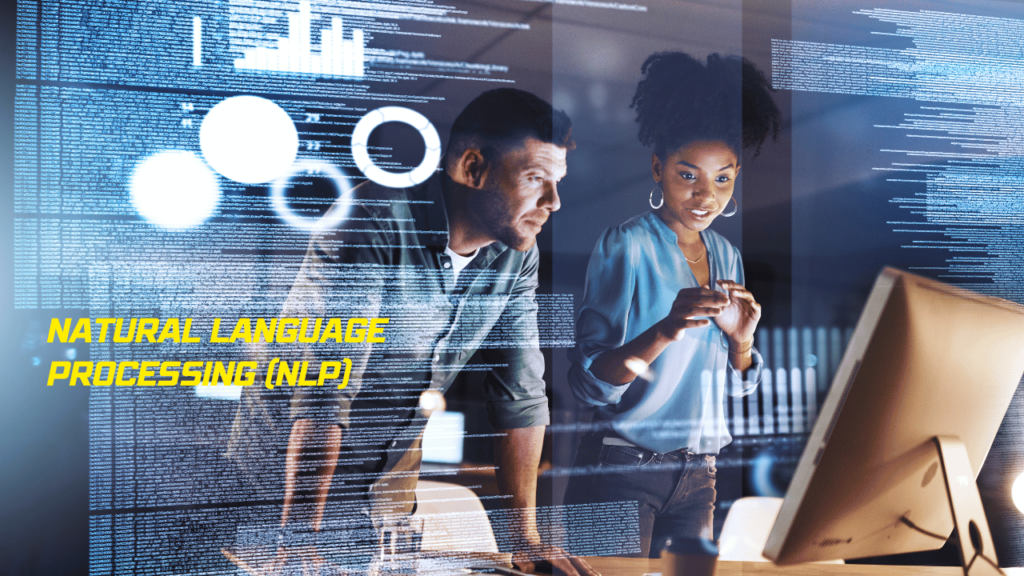What is meta ai on facebook? In the ever-evolving world of technology, Artificial Intelligence (AI) has emerged as a game-changer, revolutionizing various industries and shaping the way we live, work, and interact with the digital realm.
One company at the forefront of this AI revolution is Meta (formerly known as Facebook), the social media giant that has become synonymous with connecting people across the globe. With its vast user base and cutting-edge technological capabilities, Meta has ventured into the realm of AI, developing advanced systems and tools that aim to enhance user experiences and unlock new possibilities.
Understanding Meta AI
Meta AI, or Meta’s Artificial Intelligence division, is a dedicated team of researchers, engineers, and data scientists working tirelessly to push the boundaries of AI technology.
This division’s primary focus is on developing advanced machine learning algorithms, natural language processing (NLP) models, computer vision systems, and other AI-driven technologies that can be seamlessly integrated into Meta’s various platforms and services.
Key Areas of Focus
1. Natural Language Processing (NLP)

One of Meta AI’s primary areas of focus is Natural Language Processing (NLP), which involves developing AI systems that can understand, interpret, and generate human language. This technology is crucial for enhancing user experiences on social media platforms, enabling more natural and intuitive interactions between users and Meta’s services.
Meta has made significant strides in NLP, developing advanced language models capable of understanding context, sentiment, and nuances in human communication. These models are employed in various applications, such as real-time language translation, content moderation, and personalized recommendations.
2. Computer Vision
In the age of visual media, computer vision is another key area where Meta excels. This technology involves training AI systems to understand and analyze visual data, such as images and videos. Meta AI’s computer vision capabilities are leveraged in various applications, including image and video recognition, object detection, and facial recognition.
One notable application of Meta AI’s computer vision technology is its ability to automatically generate descriptions for images and videos, making social media content more accessible to users with visual impairments. Additionally, computer vision is used for content moderation, detecting and removing inappropriate or harmful content from Meta’s platforms.
3. Recommender Systems

Meta AI plays a crucial role in developing advanced recommender systems that personalize the user experience on Meta’s platforms. These systems leverage machine learning algorithms and user data to deliver personalized content, advertisements, and recommendations tailored to each user’s interests, preferences, and behavior.
Meta’s recommender systems are designed to learn and adapt over time, ensuring that users receive relevant and engaging content that aligns with their evolving interests and needs. This technology not only enhances user satisfaction but also drives engagement and revenue for Meta’s platforms.
4. Content Moderation and Safety
With billions of users worldwide, content moderation and safety are paramount concerns for Meta. Meta has developed sophisticated AI systems to detect and remove harmful, inappropriate, or abusive content from its platforms. These systems leverage machine learning algorithms, natural language processing, and computer vision technologies to identify and flag potentially problematic content.
Meta AI’s content moderation systems are continuously evolving, adapting to new threats and leveraging cutting-edge techniques to ensure a safe and respectful online environment for all users.
5. Privacy and Ethical AI
As AI technology becomes increasingly pervasive, concerns surrounding privacy and ethical considerations have come to the forefront. Meta AI is committed to developing AI systems that prioritize user privacy and adhere to ethical principles.
Meta researchers are actively involved in developing AI models that respect user privacy by design, ensuring that personal data is protected and used responsibly. Additionally, Meta is exploring techniques for explainable AI, where the decision-making processes of AI systems are transparent and understandable to users and developers alike.
Real-World Applications and Impact
Meta AI’s technologies have far-reaching implications and real-world applications that extend beyond social media platforms. Here are some notable examples:
1. Accessibility and Inclusion
Meta AI’s NLP and computer vision technologies have the potential to revolutionize accessibility for users with disabilities. For instance, AI-powered virtual assistants can help visually impaired users navigate and interact with digital content more effectively, while real-time language translation can break down communication barriers and foster inclusivity.
2. Healthcare and Medical Research
Meta AI’s expertise in machine learning and data analysis can be leveraged in the healthcare and medical research domains. AI-driven systems can assist in disease diagnosis, drug discovery, and medical image analysis, potentially leading to more accurate diagnoses and personalized treatment plans.
3. Education and Learning
AI-powered educational tools and personalized learning systems developed by Meta can revolutionize the way students learn and acquire knowledge. These systems can adapt to individual learning styles, provide real-time feedback, and offer tailored learning experiences based on each student’s strengths and weaknesses.
4. Environmental Sustainability

Meta AI’s technologies can be applied to address environmental challenges and promote sustainability. For example, computer vision and machine learning algorithms can be used for monitoring deforestation, tracking wildlife populations, and optimizing sustainable agriculture practices.
5. Public Safety and Disaster Response
AI systems developed by Meta can play a crucial role in public safety and disaster response efforts. Computer vision and NLP technologies can be employed for real-time monitoring of emergency situations, detecting potential threats, and facilitating efficient communication and coordination among response teams.
Challenges and Ethical Considerations
While Meta AI’s advancements hold immense potential, they also present challenges and ethical considerations that must be addressed:
1. Bias and Fairness
AI systems can perpetuate societal biases and discriminatory practices if not designed and trained properly. Meta is actively working to develop AI models that are fair, unbiased, and inclusive, ensuring that their technologies do not reinforce or amplify existing prejudices.
2. Privacy and Data Protection
As AI systems rely heavily on data for training and development, concerns surrounding user privacy and data protection have arisen. Meta is committed to implementing robust privacy safeguards and adhering to strict data protection regulations to maintain user trust and ensure responsible data handling.
3. Transparency and Accountability

To foster public trust and acceptance of AI technologies, transparency and accountability are crucial. Meta AI is exploring techniques for explainable AI, where the decision-making processes of AI systems are understandable and interpretable, allowing for greater scrutiny and accountability.
4. Ethical AI Governance
The rapid advancement of AI technologies necessitates the establishment of ethical frameworks and governance structures to ensure responsible development and deployment. Meta AI is actively engaged in discussions and collaborations with policymakers, researchers, and industry stakeholders to shape ethical AI governance and establish best practices.
Collaboration and Open Research
Meta AI recognizes the importance of collaboration and open research in advancing AI technology. The company actively collaborates with academic institutions, research organizations, and other industry partners to foster knowledge sharing, tackle complex challenges, and drive innovation in the field of AI.
Meta AI also embraces open research practices, publishing research papers, sharing datasets, and contributing to open-source AI projects. This commitment to openness and collaboration accelerates the pace of progress and ensures that the benefits of AI are widely accessible and impactful.
Conclusion
Meta AI represents a significant driving force in the development and application of cutting-edge AI technologies. From natural language processing and computer vision to recommender systems and content moderation, Meta AI is shaping the future of social media and beyond.
As AI continues to evolve and permeate various aspects of our lives, Meta AI’s commitment to responsible development, ethical considerations, and collaboration with stakeholders becomes increasingly crucial. By addressing challenges and prioritizing user privacy, fairness, and transparency, Meta AI has the potential to unlock transformative solutions that enhance user experiences, drive innovation, and positively impact society as a whole.
The future of AI is inextricably linked to companies like Meta, whose dedication to pushing the boundaries of this technology will undoubtedly shape the digital landscape for generations to come.
FAQs
What is Meta AI?
Meta AI is the artificial intelligence division of Meta (formerly Facebook). It is a team of researchers, engineers, and data scientists dedicated to developing advanced AI technologies for integration into Meta’s various platforms and services.
What are the key areas of focus for Meta AI?
Meta AI focuses on several key areas, including natural language processing (NLP), computer vision, recommender systems, content moderation and safety, and privacy and ethical AI.
How does Meta AI utilize natural language processing (NLP)?
Meta AI’s NLP technologies are used for a variety of applications, such as real-time language translation, content moderation, and personalized recommendations. NLP models help Meta’s platforms understand, interpret, and generate human language more effectively.
What role does computer vision play in Meta AI?
Computer vision is crucial for Meta AI, enabling the understanding and analysis of visual data like images and videos. Meta AI’s computer vision capabilities are employed in applications like image and video recognition, object detection, facial recognition, and generating descriptions for visual content.
How do Meta AI’s recommender systems work?
Meta AI’s recommender systems leverage machine learning algorithms and user data to deliver personalized content, advertisements, and recommendations tailored to each user’s interests, preferences, and behavior. These systems continuously learn and adapt to provide relevant and engaging content.
How does Meta AI handle content moderation and safety?
Meta AI has developed sophisticated AI systems that use machine learning, NLP, and computer vision to detect and remove harmful, inappropriate, or abusive content from its platforms. These systems are continuously evolving to address new threats and ensure a safe online environment.
What is Meta AI doing to address privacy and ethical concerns?
Meta AI is committed to developing AI systems that prioritize user privacy and adhere to ethical principles. Researchers are working on AI models that respect privacy by design, as well as techniques for explainable AI to promote transparency and accountability.
What are some real-world applications of Meta AI beyond social media?
Meta AI’s technologies have potential applications in various domains, including accessibility and inclusion, healthcare and medical research, education and learning, environmental sustainability, and public safety and disaster response.
How is Meta AI addressing the challenge of bias and fairness in AI?
Meta AI is actively working to develop AI models that are fair, unbiased, and inclusive, ensuring that their technologies do not perpetuate or amplify existing societal biases and discriminatory practices.
Does Meta AI collaborate with other organizations?
Yes, Meta AI recognizes the importance of collaboration and open research. The company actively collaborates with academic institutions, research organizations, and industry partners to foster knowledge sharing, tackle complex challenges, and drive innovation in the field of AI.








3 thoughts on “what is meta ai on facebook?”